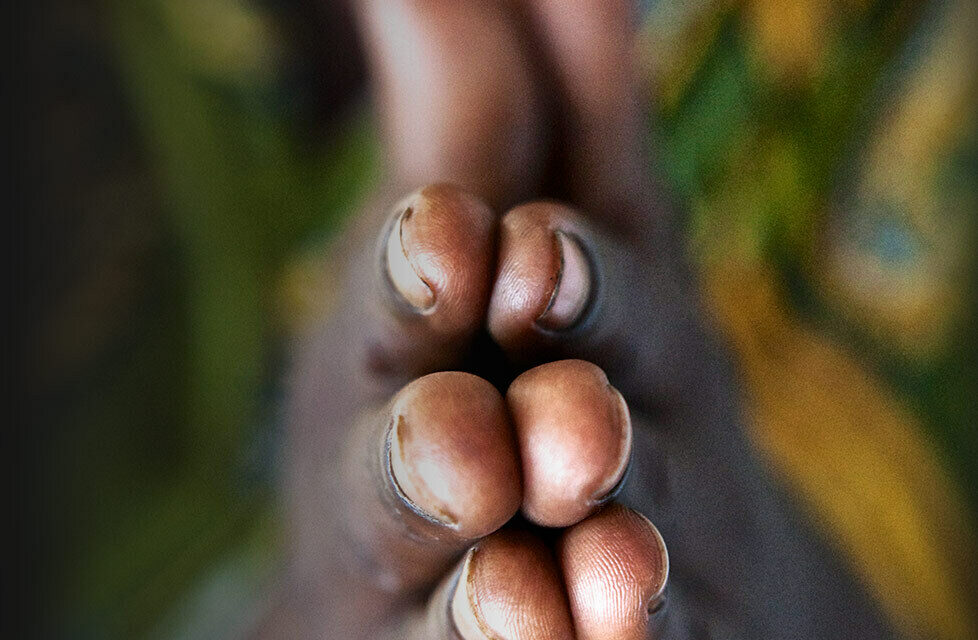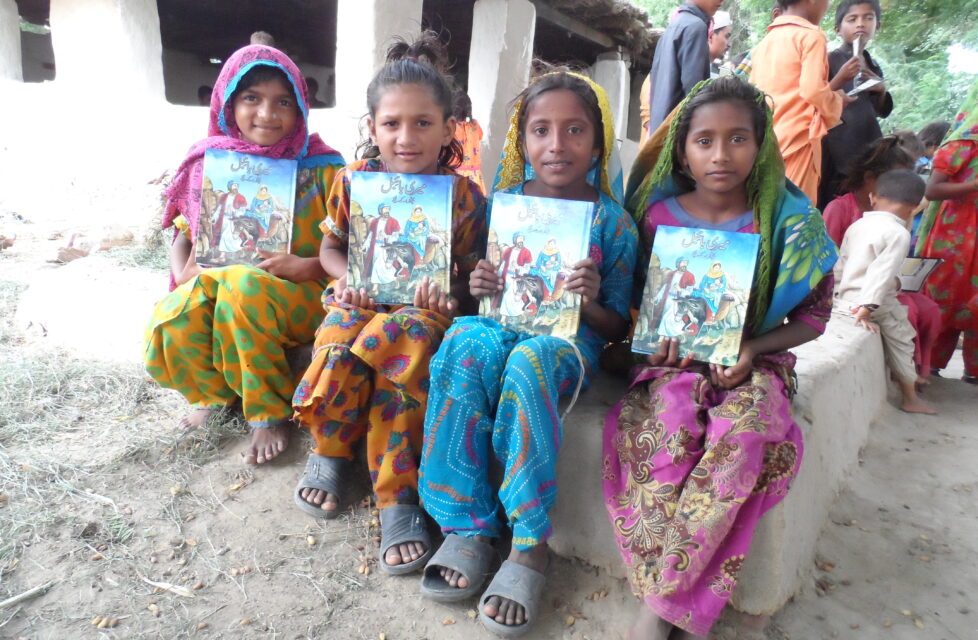Even though Ibrahim came to faith in Christ more than 50 years ago, he has lost none of his zeal for ministry. He has been a passionate evangelist, sharing the gospel among ethnic Somalis and planting more than 20 churches. His ministry work has come at great cost, however, as most Somalis believe that to be Somali is to be Muslim. Therefore, those who faithfully serve Christ or convert from Islam in Somali communities face severe persecution. Still, Ibrahim has been a bold witness for Christ among Somalis despite risks.
Read MoreChristians in remote parts of northern Kenya cannot easily access or afford Bibles that are often available for purchase only in far-away cities like Nairobi. Some churches in this part of Kenya have only one Bible to share among their congregations. A local pastor said that one young man refused to do his schoolwork so he could focus on studying the Bible when it was his family’s turn with their church’s Bible. Without knowledge of God’s Word, many Christians in that region have been vulnerable to the influence of Islam. VOM worked with a local group of pastors and lay ministers to distribute more than 14,000 Bibles, including illustrated and audio Bibles, in this remote region of Kenya.
Read MoreRadical Islamic groups based in Somalia regularly attack Christians in Kenya who live near the border. Late in the evening of January 2, 2022, al-Shabab terrorists from Somalia broke into a house, pulled out a Kenyan father of four named Joseph and questioned him about his religion. When Joseph boldly declared that he was a Christian, they beheaded him. They then threatened his wife, Grace, and set the home ablaze. On September 26, 2023, terrorists returned to the village and destroyed Grace’s rebuilt home.
Read MorePastor Matthew leads a small church in northern Kenya. Every Sunday as he preaches, Muslims from the surrounding neighborhood pummel the church with rocks. They occasionally throw stones at the home where he, his wife and their four children live. Their family and other Christians in the town are regularly discriminated against, especially at funerals, which are usually communal events. Pastor Matthew recalled attending a funeral where he was served a meal and sat down to eat with a group of men.
Read MoreA church in a Kenyan town with a significant Muslim population has met for years underneath a tree, and the group desperately needs a building. The church was founded in 2017 by a Kenyan missionary in the yard of his first convert. Front-line workers said, “The Kenyan missionary who started the church received a lot of intimidation and mockery.
Read MoreWhen more than 20 Christian children in northern Kenya received candy from Muslim evangelists in November 2018, they readily pledged to return to Islam, which predominates their Borana Oromo tribe. But days later, Christian workers arrived with a load of cargo that proved more precious and lasting than sugar — children’s Bibles. Christian workers led five donkeys loaded with children’s Bibles through thick forests and across winding rivers to reach the village of Uran Lataka, near Kenya’s border with Ethiopia. They then distributed copies of the illustrated Bible to 52 children, including many who had recently turned their backs on the Christian faith. As the children saw the Bible stories told through the book’s colorful, dramatic images, they were hooked, and in the days that followed most who had been enticed by the Muslims’ candy renewed their commitment to Jesus. “One of the kids couldn’t stop looking through the pictures of the Bible when he received it, even after reaching home,” a VOM worker said. In addition to strengthening the children who were secure in their Christian faith and re-engaging those less committed, children’s Bibles have also proved valuable to Sunday school teachers as a resource for weekly lessons. After
Read MoreChristians in a northern Kenyan village are rejoicing as they begin construction on a new church. In this area, death threats and persecution from Muslim neighbors had forced them to meet in the safety of a local police station. Front-line workers say the construction of a new church is a step toward the full acceptance of Christianity in the village.
Read MoreWhen Muslims denied water access to the only Christian church in town, front-line workers helped church members drill a borehole to access water. During a severe drought in Kenya, the community borehole dried up, but the church borehole remained strong.
Read MoreSmuggling the Digital Word Al-Shabab militants came for Christian schoolteachers Philip Okumu and Daniel Wekesa in the middle of the night. They surrounded the men’s house in their small Kenyan village near the Somali border and then tossed a grenade through a window. As flames spread through the concrete-block structure, Philip and Daniel ran for the door and were shot to death as they exited the building. According to a group of Somali Christian leaders, the men were killed for sharing the gospel with their students. Although based in Somalia, al-Shabab terrorists move freely across the country’s borders with Kenya and Ethiopia in a region known as Greater Somalia, enforcing their harsh religious standards with brutal injustice. Sharing the gospel in this region is extremely dangerous. Neither the Somali nor Kenyan government has been able to control the Islamist group in this lawless border region, prompting the Kenyan government to urge non-Muslim government workers like Philip and Daniel to leave the area. The two Christian men chose to stay, however, because they knew the ethnically Somali children they taught would have no other way of hearing the gospel. Their love for the children and faithfulness to Christ cost them
Read MoreChristians in coastal Kenya were targeted in multiple Islamic attacks during June and July 2014. While Christians compose the majority of the population in Kenya, Muslim influence has grown, and Christians have faced increasing persecution from Islamic militants in recent years, notably from the Somali-based al-Shabab. Al-Shabab first targeted the village of Mpeketoni in June. Nearly fifty militants stormed the village, going door-to-door asking villagers if they were Muslim or Christian, and then killing the Christians. “My husband told them we were Christians, and they shot him in the head and chest,” said attack survivor Samantha. The attack lasted five hours, leaving sixty people dead. Days later, Poromoko, Kenya, was targeted in an attack in which fifteen were killed and twelve women abducted. As in the Mpeketoni attack, armed men went door-to-door in the middle of the night, dragging people outside and ordering them to recite the Islamic creed. Those who couldn’t or wouldn’t were killed. Almost two weeks later, fourteen were killed in an attack on the village of Hindi. Militants again went house-to-house and dragged Christians out of their homes. They tied up the Christian men before shooting them or slitting their throats. One man who refused to
Read More



